
Building on the success of its inaugural Summit, the Institute of Global Health Innovation (IGHI) have collaborated with the Qatar Foundation to host the World Innovation Summit for Health (WISH) in Doha, Qatar. This two day meeting gathered a distinguished audience of decision-makers and influencers from across the world to discuss practical, lasting and innovative solutions to global healthcare challenges.
Before the summit, teams of international experts drawn from academia, industry and policy were commissioned to carry out policy research into eight topics: accountable care, antimicrobial resistance, big data and health, end-of-life care, mental health, obesity, patient engagement, and road traffic injury and trauma care. Their findings were reported at the summit.
Sir Thomas Hughes-Hallett, Executive Chair of the IGHI at Imperial, chaired the forum on end-of-life care. “How we care for the dying is a litmus test of a good health system and a responsible society. Health systems have to change and embrace the need to develop innovative approaches and technologies for end-of-life care. All resources in society have a role to play – families, communities, health and care providers and technology.”
IGHI’s Centre for Health Policy also launched their new report The Global Diffusion of Healthcare Innovation at WISH.
Professor the Lord Darzi of Denham, Director of IGHI and Executive Chair of WISH said “We want to inspire people to take up the best ideas and implement them in countries all over the world, closing the gap between what we know and what we do. And by bringing together people with the power to make a real difference, our ambition is to help improve the health of people everywhere.”
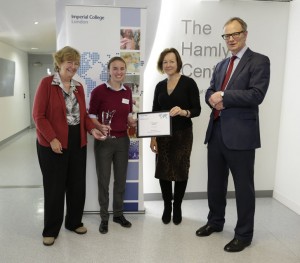 The annual Student Challenges Competition offers Imperial medical students the opportunity to showcase their research and to win £5000 prize money to fund their chosen project, which can be on any aspect of global health innovation.
The annual Student Challenges Competition offers Imperial medical students the opportunity to showcase their research and to win £5000 prize money to fund their chosen project, which can be on any aspect of global health innovation.
Each year, IGHI hosts a Dragon’s Den Style event to find the winner.
Gabrielle Prager, a fifth year medical student at Imperial scooped the £5,000 prize money for her work on improving the diagnosis of schistosomiasis, a neglected tropical disease.
Gabrielle and the other three finalists pitched their ideas to three high-level judges – IGHI’s Executive Chair and former CEO of Marie Curie Cancer Care, Sir Thomas Hughes-Hallett; former Chief Executive of NHS London Dame Ruth Carnall and Chair of the Trustee Board of Imperial’s Student Union, Professor Dame Julia Higgins.
Other entries covered a range of topics, including an online resource to tackle non-communicable disease, a workshop for health workers in West Africa to examine palliative care in the Gambia and a high-level symposium for world-leading experts to discuss practical ways to combat climate change.
Read Gabrielle’s blog post about her journey through the competition here
Information on how to enter Student Challenges 2014 can be found here
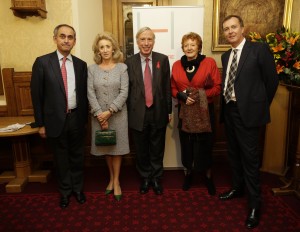 The Helix Centre, a collaboration between Imperial’s IGHI and the Royal College of Art was launched during a reception at the House of Lords.
The Helix Centre, a collaboration between Imperial’s IGHI and the Royal College of Art was launched during a reception at the House of Lords.
The vision of the Helix Centre for Design in Healthcare is to transform healthcare using design, making the UK a global business hub for low cost and high impact innovation.
Embedded in a clinical environment in St Mary’s Hospital, Imperial College NHS trust, the new HELIX Centre will focus on frugal innovation or high impact, low cost design. Encouraging a culture of innovation in the NHS, HELIX will run an extensive programme of training, workshops and seminars in innovation and entrepreneurship for healthcare staff.
Professor the Lord Darzi, co- director of HELIX and Director of IGHI said: “Innovation in healthcare can come at a high price. In the developed world it is often characterised by costly and high tech initiatives, where ideas can take a decade to deliver from concept into a clinician’s hands. HELIX will use design to solve everyday problems in healthcare, focusing on frugal solutions which can be adopted more quickly by health systems.”
Jo Seed
Communications and Events Officer
Institute of Global Health Innovation
Read Institute of Global Health Innovation – January 2014 Update in full
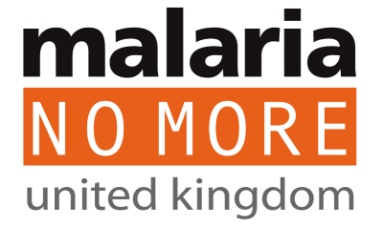


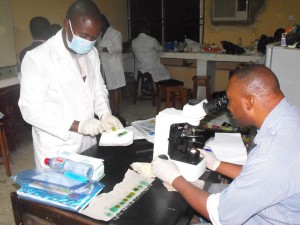
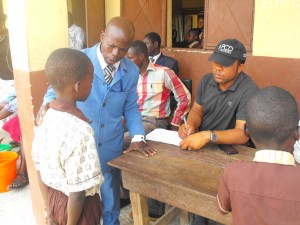

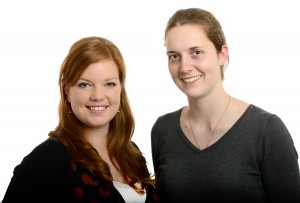

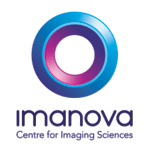

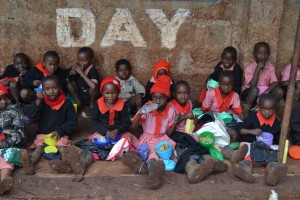
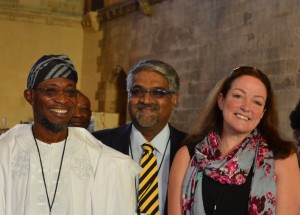
 What happens to your body if you’re stabbed? How deep does that wound go? What organs might be injured? And how do surgeons put things right? Professor Roger Kneebone and his team show what goes on – before, during and after surgery. Not for the faint-hearted.
What happens to your body if you’re stabbed? How deep does that wound go? What organs might be injured? And how do surgeons put things right? Professor Roger Kneebone and his team show what goes on – before, during and after surgery. Not for the faint-hearted. The Clinical Trials Centre at St. Mary’s Hospital are looking for healthy HIV NEGATIVE male and female volunteers between the ages of 18-45, who are going to be around London for 6 months to take part in a Phase I clinical trial to develop a new vaccine.
The Clinical Trials Centre at St. Mary’s Hospital are looking for healthy HIV NEGATIVE male and female volunteers between the ages of 18-45, who are going to be around London for 6 months to take part in a Phase I clinical trial to develop a new vaccine. Imanova Limited is a world-leading research centre for imaging sciences housed in the Burlington Danes building on the Hammersmith Hospital campus. They undertake imaging science research and biomarker development, whilst considering the valuable application of this in early drug development.
Imanova Limited is a world-leading research centre for imaging sciences housed in the Burlington Danes building on the Hammersmith Hospital campus. They undertake imaging science research and biomarker development, whilst considering the valuable application of this in early drug development.



